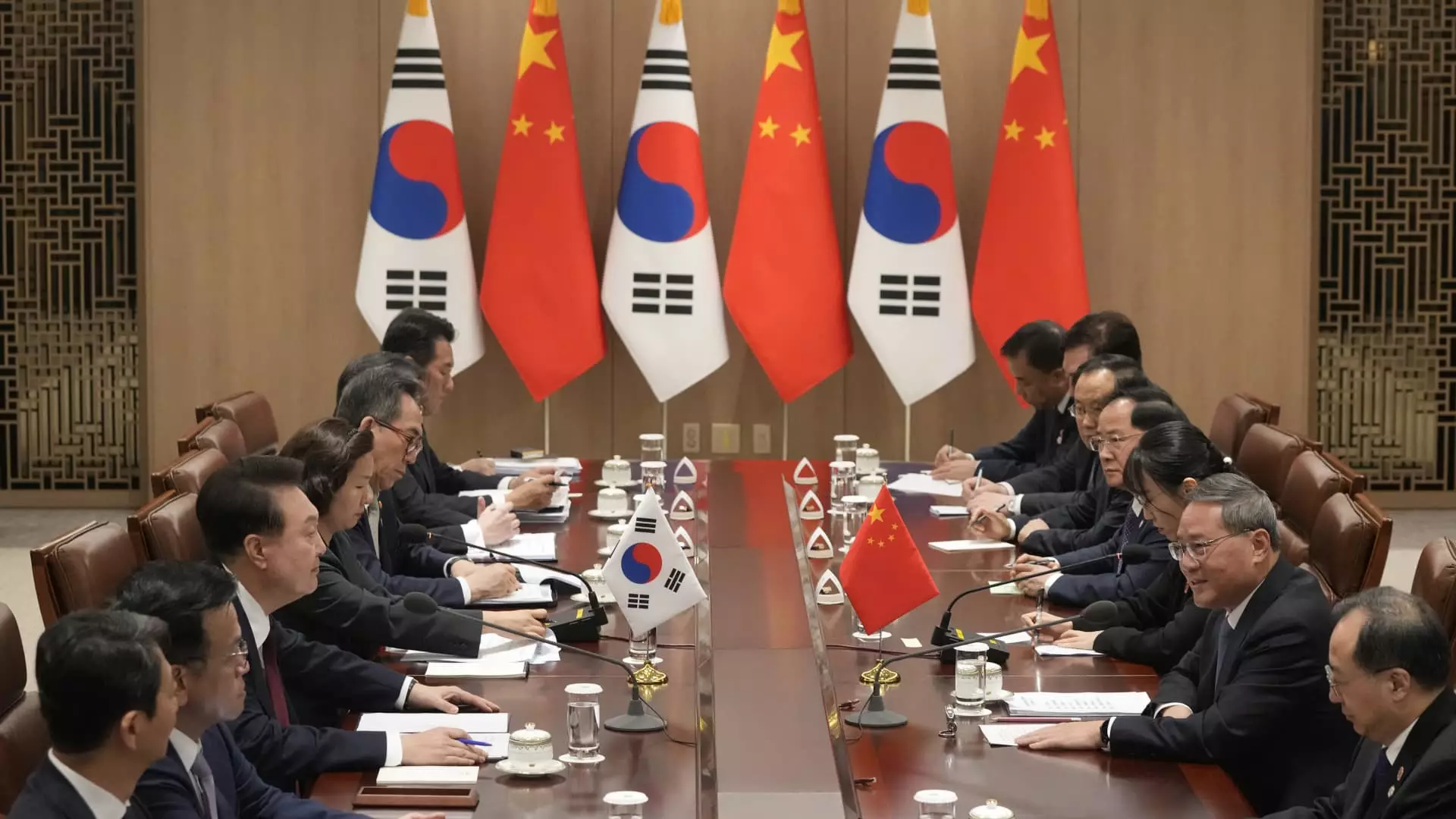In a trilateral summit held in Seoul, China urged Japan and South Korea to reject “protectionism” and uphold free trade. Chinese Premier Li Qiang emphasized the importance of not turning economic and trade issues into “political games or security matters.” He highlighted the need for the three countries to view each other as “partners and opportunities for development.” This meeting marked the ninth trilateral summit between China, Japan, and South Korea, signaling a concerted effort to reinvigorate economic and security ties in the region.
The joint statement released after the summit indicated a commitment to “institutionalize” three-way cooperation by regularly holding trilateral summits and ministerial meetings. The leaders also agreed to accelerate negotiations for a free trade agreement that would be “fair, comprehensive, high-quality, and mutually beneficial.” Despite the importance of the summit in stabilizing relations between the three countries, some experts believe that concrete initiatives may take time to materialize.
The trilateral summit took place against the backdrop of heightened regional security concerns, particularly in the face of nuclear and missile threats from North Korea. The joint call for the denuclearization of the Korean Peninsula underscored the shared commitment to address security challenges in the region. Experts pointed out that China’s leverage over North Korea is limited, making it essential for Japan and South Korea to collaborate closely with the United States on security issues.
On the economic front, the three countries emphasized the need for a transparent global level playing field for trade and investment. Ensuring open communication in the field of export control was identified as a priority in the joint statement. However, the delicate balance of economic interests in the region was highlighted by experts, who noted that China remains a significant market for both Japan and South Korea. The challenge lies in balancing economic opportunities with geopolitical considerations.
Bilateral talks held on the eve of the summit between China and both South Korea and Japan focused on maintaining stable relationships. Concerns were raised over issues such as the situation in the South China Sea and developments in Taiwan. While efforts were made to underscore the importance of peace and stability in the region, geopolitical tensions continue to impact the economic relationship between Japan and China. Finding a way to navigate these challenges remains a priority for both countries.
The trilateral summit in East Asia highlighted the significance of rejecting protectionism and upholding free trade in fostering regional cooperation. While the call for free trade is crucial, the complex geopolitical landscape and security challenges in the region pose significant hurdles. Balancing economic priorities with security concerns will require continued dialogue and cooperation among China, Japan, and South Korea. As the three countries work towards strengthening their ties, the need for a stable and prosperous East Asia remains paramount.


Leave a Reply